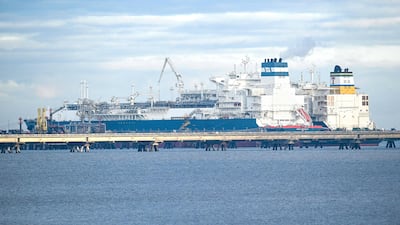European natural gas prices have fallen to a more than one-year low as milder temperatures lead to a drop in demand.
Dutch Title Transfer Facility gas futures, the benchmark European contract, closed at €64.30 ($68.19) per megawatt hour on Wednesday, the lowest level since October 2021.
European gas prices hit a record high of about €343 per megawatt hour in August after Russia reduced gas deliveries to the continent in response to wide-ranging economic sanctions following its invasion of Ukraine.
“Concerns that there may not be enough gas available for this winter to cover demand have started to evaporate,” said Tom Marzec-Manser, head of gas analytics at ICIS.
“But this does not mean we are out of the woods yet. Storages have to be refilled again through the upcoming summer, so they are ready again for next winter.
“Refilling those storage sites is going to be much harder than last year, given there will be noticeably less Russian gas available.”
The EU could fall short by about 27 billion cubic metres (bcm) of gas this year if Russian gas deliveries drop to zero and China’s imports of liquefied natural gas rebound to 2021 levels, the International Energy Agency said in a report last month.
Pan-European demand for natural gas in December 2022 was 11 per cent below the five-year average, ICIS said.
“Residential, commercial and industrial gas-users have all been reducing their gas consumption over winter, given the high price of gas,” the consultancy said.
European countries have signed several LNG import agreements with the US and Gulf countries over the past few months.
In December, a record 12 million tonnes of the fuel was imported into the integrated EU and UK gas grid, ICIS said.
The EU’s gas storage capacity is about 83 per cent full, thanks to rising LNG imports and lower-than-normal demand, the consultancy said.
The EU has approved an emergency cap on gas prices, which, from February 15, would be triggered if benchmark gas prices rose to €180 per megawatt hour for three working days in a row.
The spread between prices on the Dutch Title Transfer Facility hub and global LNG prices also needs to reach €35 over the same period of time for the cap to be implemented.
Once activated, it would remain in force for at least 20 working days.
The cap, about €116 per megawatt hour higher than current gas prices, is unlikely to be triggered, but will protect European consumers from “extreme price spikes” seen earlier this year, Norway-based consultancy Rystad Energy said in a report last month.
In May, the EU launched the REPowerEU plan, which comprises measures to tackle the energy crisis caused by Russia's invasion of Ukraine.
With the help of the programme, the bloc plans to reduce demand for Russian gas by two thirds before the end of the year, with a mobilisation of up to €300 billion in investments.

